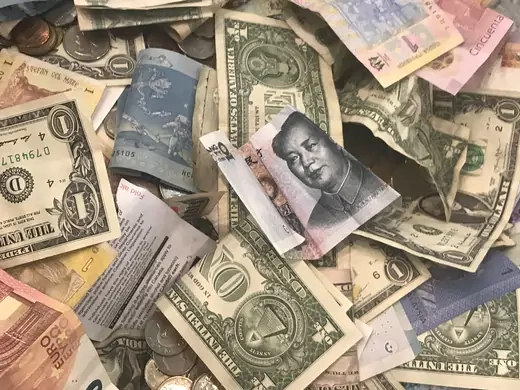- Iran
- Israel-Hamas
-
Topics
FeaturedIntroduction Over the last several decades, governments have collectively pledged to slow global warming. But despite intensified diplomacy, the world is already facing the consequences of climate…
-
Regions
FeaturedIntroduction Throughout its decades of independence, Myanmar has struggled with military rule, civil war, poor governance, and widespread poverty. A military coup in February 2021 dashed hopes for…
Backgrounder by Lindsay Maizland January 31, 2022
-
Explainers
FeaturedDuring the 2020 presidential campaign, Joe Biden promised that his administration would make a “historic effort” to reduce long-running racial inequities in health. Tobacco use—the leading cause of p…
Interactive by Olivia Angelino, Thomas J. Bollyky, Elle Ruggiero and Isabella Turilli February 1, 2023 Global Health Program
-
Research & Analysis
Featured
Terrorism and Counterterrorism
Violence around U.S. elections in 2024 could not only destabilize American democracy but also embolden autocrats across the world. Jacob Ware recommends that political leaders take steps to shore up civic trust and remove the opportunity for violence ahead of the 2024 election season.Contingency Planning Memorandum by Jacob Ware April 17, 2024 Center for Preventive Action
-
Communities
Featured
Webinar with Carolyn Kissane and Irina A. Faskianos April 12, 2023 Academic and Higher Education Webinars
-
Events
FeaturedJohn Kerry discusses his work as U.S. special presidential envoy for climate, the challenges the United States faces, and the Biden administration’s priorities as it continues to address climate chan…
Virtual Event with John F. Kerry and Michael Froman March 1, 2024
- Related Sites
- More
June 26, 2018
Monetary PolicyTo minimize the risk of greater global imbalances, U.S. policymakers should rethink U.S. fiscal policy and focus on the transatlantic imbalances, not the bilateral trade deficit with China.

November 2, 2016
EconomicsSteven A. Tananbaum Senior Fellow for International Economics Robert Kahn argues that the Group of Twenty (G20) policymakers agree on the importance of stronger and more inclusive growth to address growing populism, but disagree on who—central banks, treasuries, or legislatures—should take the lead. This standoff all but guarantees that the global recovery will continue to disappoint.
August 22, 2016
BrexitSteven A. Tananbaum Senior Fellow for International Economics Robert Kahn argues that markets have absorbed the initial economic shock from Brexit, but navigating the new landscape will remain a challenge. Two months after the vote, the politics of Brexit is producing a lengthy and uncertain renegotiation of Britain’s place in Europe and the world. Such extended uncertainty is likely to produce a long-lasting drag on both UK and European economies, which could ultimately threaten the viability of the European Union (EU).
May 4, 2016
VenezuelaBottom Line: The crisis in Venezuela continues to escalate, with no recovery or relief in sight. A messy and chaotic default looms, and the rescue will likely involve a tough adjustment program, larg…
March 1, 2016
EconomicsSteven A. Tananbaum Senior Fellow for International Economics Robert Kahn argues that the International Monetary Fund (IMF) deserves credit for effectively responding to the global and European financial crises. However, the institution will face different and potentially more difficult challenges in the next five years as it struggles to come to terms with a changing international power order and lending rules that are not well suited to address future crises.
 Online Store
Online Store